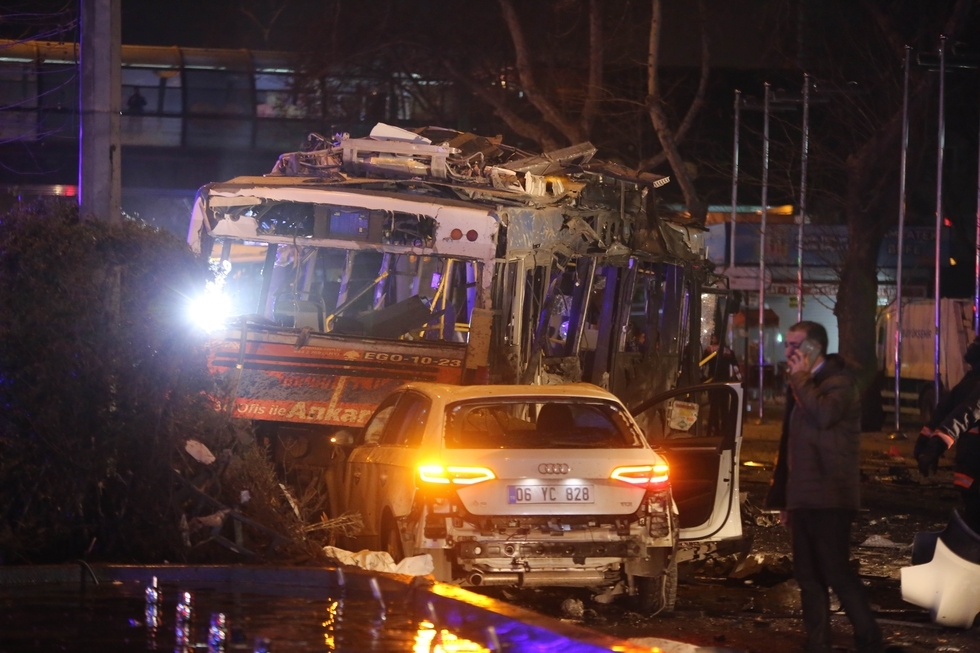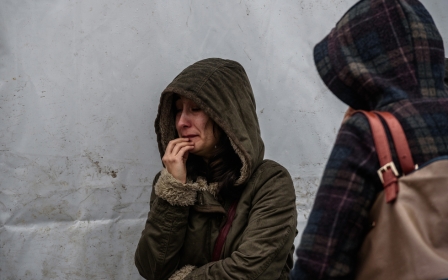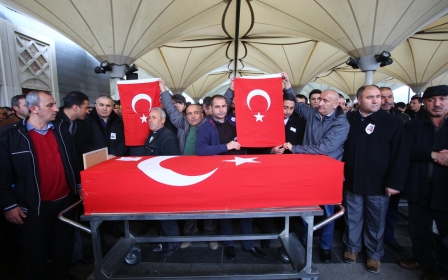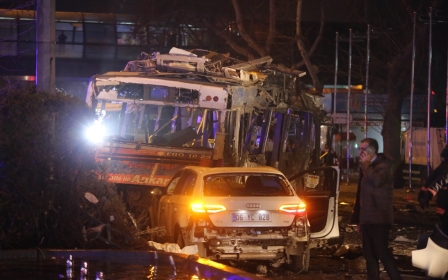Kurdish group TAK claims responsibility for Ankara bombing

A Kurdish militant group with ties to the outlawed Kurdistan Workers' Party (PKK) on Thursday claimed the deadly suicide car bomb attack that killed 35 people in Ankara last weekend.
"On the evening of March 13, a suicide attack was carried out... in the streets of the capital of the fascist Turkish republic. We claim this attack," the Kurdistan Freedom Falcons (TAK) said in a statement on its website.
The group said it was a response to security operations carried out by Turkish forces in the Kurdish-dominated southeast of the country since the collapse of a ceasefire last year.
"This action was carried out to avenge the 300 Kurds killed in Cizre as well as our civilians who were wounded," the statement said.
"We would like to apologise for the civilian losses which had nothing to do with the dirty war being waged by the fascist Turkish republic."
Sunday's attack came three weeks after a similar car bombing in Ankara killed 29 people, also claimed by TAK.
In the immediate aftermath of the latest bombing, the Turkish authorities pointed the finger at the PKK, against which Ankara has waged a relentless assault since late last year.
The government said one of the bombers was a woman in her mid-20s affiliated with the PKK and trained in Syria by the People's Protection Units (YPG), a Kurdish militia group the Turkish military shelled for several days in February.
The PKK has been fighting the Turkish state for greater autonomy for Kurds since 1984, with the conflict claiming at least 40,000 lives.
Authorities detained 11 people over the attack, Prime Minister Ahmet Davutoglu said, while Turkish jets bombed PKK targets in northern Iraq just hours after the blast.
Turkey has suffered five major bombings since July last year, killing more than 200 people, including two in Ankara in less than a month.
TAK is believed to have been established by the PKK more than 10 years ago with the aim of carrying out attacks in cities in the west of Turkey.
The group still expresses loyalty on its website to jailed PKK leader Abdullah Ocalan.
But Frederike Geerdink, a Dutch journalist covering Kurdish issues, said the group had subsequently pursued a more radical direction than the PKK.
"Where the PKK generally attacks targets in which civilian deaths are not very likely but do occur, the TAK acts contrary to that: they hit places where civilian deaths are inevitable," Geerdink wrote on Middle East Eye earlier this month.
Metin Gurcan, an independent security analyst, said that while the TAK was semi-autonomous it was reliant on the PKK for weapons, training and recruitment.
"It has the privilege of deciding independently about which target to attack, where and when, but is desperately in need of the PKK for ideological doctrine, military training, recruitment, weaponry and logistics," he said.
But Howard Eissenstat, a Turkey expert at St Lawrence University in New York, said he believed the group was not directly controlled by the PKK and had diverged from it due to disagreements over its engagement in the peace process with the Turkish government, which collapsed with the two-year ceasefire last year.
Middle East Eye propose une couverture et une analyse indépendantes et incomparables du Moyen-Orient, de l’Afrique du Nord et d’autres régions du monde. Pour en savoir plus sur la reprise de ce contenu et les frais qui s’appliquent, veuillez remplir ce formulaire [en anglais]. Pour en savoir plus sur MEE, cliquez ici [en anglais].




